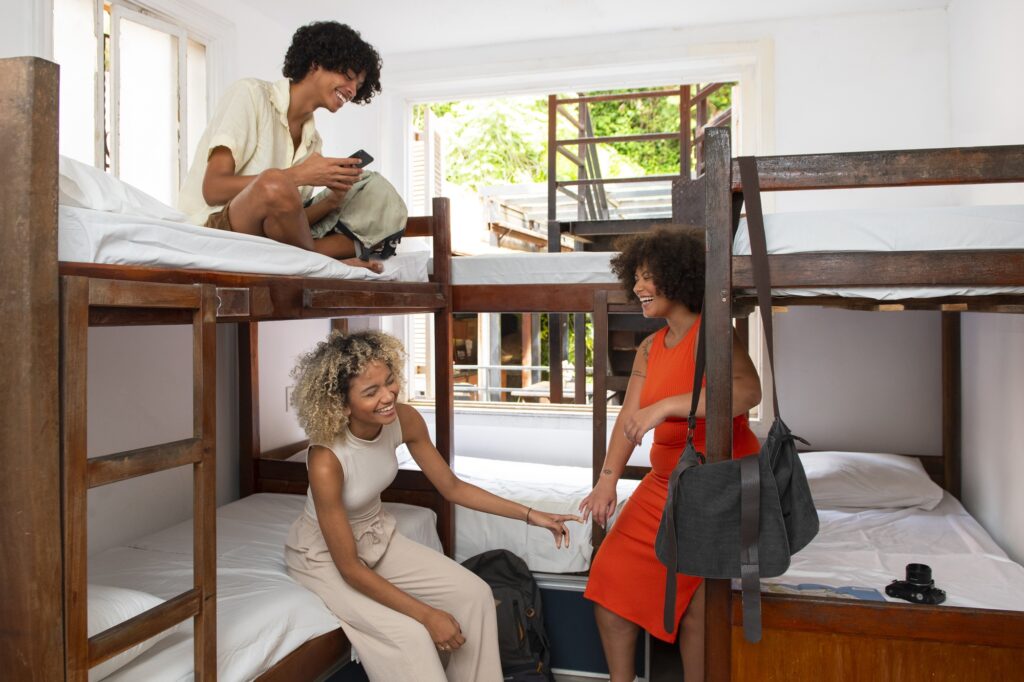
Social Life in Student Housing
One of the biggest challenges for students studying abroad is learning how to balance study time with social life—especially when you’re living with friends or fellow students in student housing. With constant events, flatmates knocking at your door, and the buzz of a new environment, it’s easy to feel pulled in all directions. But finding that balance isn’t impossible—it just takes a little planning, self-awareness, and structure.
Living in student accommodation can help you stay focused and socially connected—if you know how to manage it well.
Lets Explore Some Tips For Smooth Social Life At Student Housing
Understand Your Priorities
It all starts with understanding what you want out of your time abroad. Your academic goals are a big part of your journey, but social connections, cultural experiences, and downtime matter too. Reflecting on what balance means to you will help you plan your time and energy more intentionally.
Some weeks, your schedule might lean more toward deadlines and study sessions. Other times, you’ll have space for exploring the city, going to flatmate dinners, or enjoying student events. Recognising this rhythm can prevent burnout and FOMO alike.
Build a Routine That Works for You
Having a routine doesn’t mean scheduling every second of your day—but it does give your week structure. When your classes, study blocks, and breaks are planned in advance, you’re less likely to feel overwhelmed or behind.
Start by blocking out your non-negotiables (lectures, tutorials, assignments), then work in your social plans or downtime around them. Using digital planners or calendar apps can be a great way to visualise your week and stay on track.
Make room for:
- Focused study sessions during your most productive hours
- Breaks and time off to recharge
- Weekly activities or social catch-ups
- “No phone” hours for deep work
Choose the Right Living Environment
Where you live has a big impact on how easily you can strike a healthy balance. Some residences have built-in community activities and quiet zones, while others may be located closer to nightlife or campus clubs. Knowing what environment suits your personality and study habits is crucial.
If you’re someone who gets easily distracted, consider moving into Private Student Housing that offers designated study lounges or quiet rooms. These types of accommodations often provide more independence and fewer disruptions, allowing you to focus when it matters most.
Communicate with Flatmates
Living with others can be one of the best parts of student life—but it also comes with its challenges. Whether it’s late-night noise or unplanned gatherings, your study time can take a hit if there’s no understanding in place.
Setting boundaries early and being open about your academic responsibilities helps create mutual respect in shared spaces. You don’t have to miss out on all the fun, but being honest about when you need quiet time can make a big difference.
Tips for healthy flatmate communication:
- Create a shared calendar for social plans or house dinners
- Set quiet hours during exam weeks
- Respect each other’s personal space and schedules
- Celebrate small wins together (like post-exam takeout nights!)
Use Common Spaces Wisely
Most Student Housing communities include shared areas like lounges, gyms, game rooms, or study zones. These spaces are great for blending social interactions with productive time—like group study sessions, co-working hours, or casual catch-ups over coffee.
Instead of isolating yourself during stressful times, find a balance by studying in communal areas where others are doing the same. It’s motivating, and you won’t feel like you’re missing out while getting your work done.
Say Yes (But Not Always)
It’s tempting to accept every invite when you’re living in a new country surrounded by people your age. Pub quizzes, parties, movie nights, impromptu day trips—it’s all part of the experience. And you should absolutely say yes to some of it.
But it’s okay to say no, too. Protecting your time and energy is part of building a balanced lifestyle. Let your friends know when you have deadlines coming up, and suggest other times to hang out. True friends will get it—and likely be in the same boat.
Make Time for Yourself
Don’t underestimate the value of alone time. Whether it’s a walk, journaling, a Netflix break, or a solo coffee run, personal downtime is essential for recharging. When you take care of your mental health, everything else—studies, friendships, and productivity—naturally improves.
In high-energy housing settings, stepping away for a bit of peace and quiet can help you reset. It also gives you perspective on how you’re spending your time and whether your current balance feels right.
Conclusion
Balancing academic and social life while living in student accommodation is a challenge—but it’s also an opportunity to build life skills that go far beyond university. By creating a flexible routine, choosing the right environment, and communicating clearly with those around you, you can enjoy the best of both worlds. Remember, it’s not about doing everything—it’s about doing what works for you.







